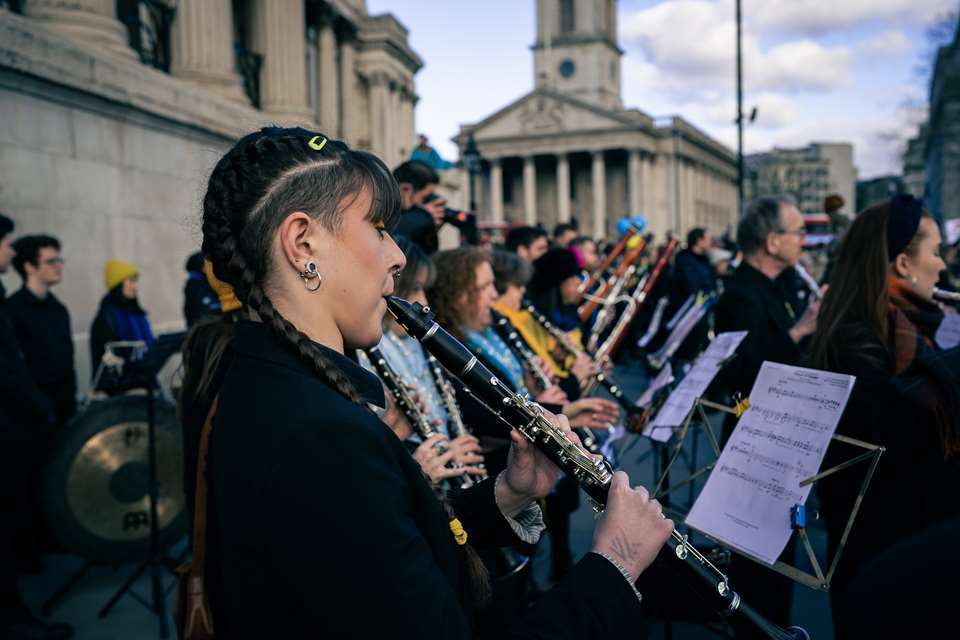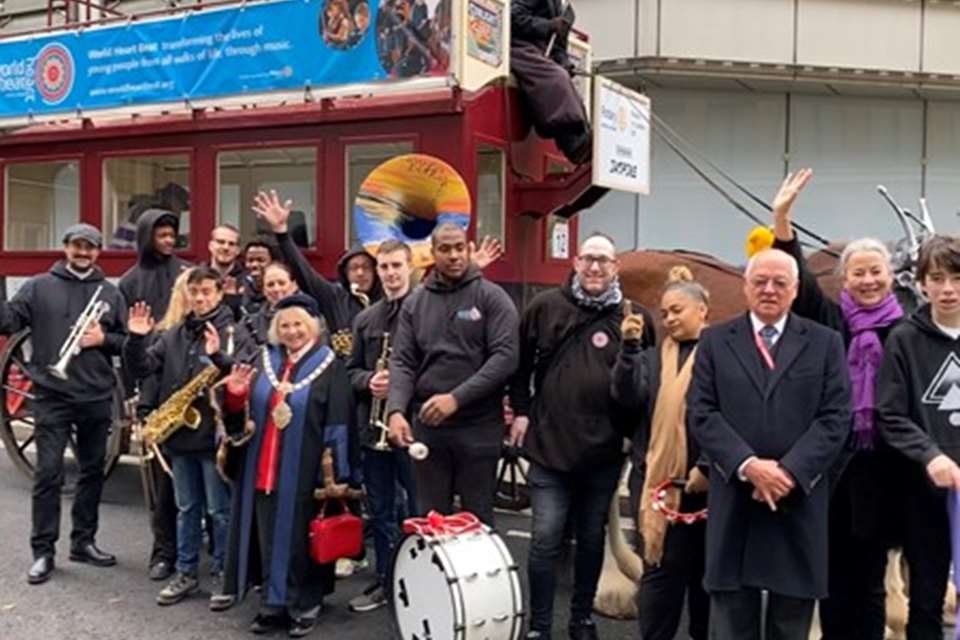Artist Managers: On the high seas
Andrew Green
Wednesday, August 24, 2022
Forget buried treasure, artist manager Stephannie Williams’s autobiography tells of the wealth of opportunities for classical musicians on cruises. Andrew Green investigates.

High summer and the thoughts of many turn to the high seas — the prospect of a spell being cosseted on a cruise-ship, adrift from the daily grind. Alas, not a prospect for your correspondent just now, but I’ve at least been soaking up the sunshine within the covers of one-time artist manager Stephannie Williams’ autobiography, Beyond the Notes, which came out in 2020. Sales of this form one part of the fundraising for the Gwyn Williams Bursary, named after Williams’s late husband (one-time principal viola of the City of Birmingham Symphony Orchestra) and dedicated to supporting the development of young string players, especially those at the Royal Birmingham Conservatoire.
There is plenty in this engaging read on Williams’s representation of a range of artists and her festival management expertise on terra firma, but the fun really starts when we board ship and lap up tales of her long years of putting together casts of classical musicians and their programmes for cruises — essentially for P&O. Voyages to Spitzbergen, round the Med or the Baltic…up the Amazon. It all began with Williams negotiating for a key client on her list, music-loving television/radio personality Richard Baker, to present P&O’s classical music programming afloat. ’Richard said he’d only take on the job if I was asked to handle the engagement of all the musicians who took part,’ Williams recalls. And that was that. It wasn’t long before Williams had set up Music Festivals at Sea Ltd to handle the classical music offer on multiple cruises. Other presenters engaged over the years included Jack Brymer and Sir Humphrey Burton, and Classic FM’s Nick Bailey and Henry Kelly. Among the plethora of artists engaged were the likes of pianists John Lill, Piers Lane and Peter Donohoe and singers such as Felicity Lott, Yvonne Howard and John Mitchinson.
Up to her retirement from this area of work in 2019, Williams was present on every cruise…but never as a mere passenger. ‘There are always things that need checking-out — the availability of rehearsal time or the sound and lighting, for example. Last-minute changes of programme and other crises that inevitably occur. There was the occasion when a tenor for an opera gala lost his voice at the very last moment…in no time the other three singers and I had to work out a new programme.’
Then there are the things you never have to think about at the Royal Festival Hall, like ensuring that passenger announcements aren’t fed into the performance space. Oh yes, it happens. Williams also had to oversee the on-shore concerts she set up for passengers along the cruise route — in the baroque Manuel Theatre in Valletta on Malta, the Manaus Theatre in the Amazon rain forest, a classy restaurant sited over a geyser in Iceland.
The need for top-quality entertainment is important as tour operators compete to offer the most luxurious experience to their guests
More from Williams in a moment, after a few thoughts on the wider and ongoing opportunities for classical musicians on the ocean waves. There’s plenty of work out there, it seems, some of it on extended contracts. Musicians engaged can generally expect to be paid a global fee, plus travel expenses to meet the ship, along with all food on board (and likely free use of facilities such as the ship’s gym). Much of the work of engaging performers is in the hands of entertainment directors at individual cruise lines, who should be approached direct. Equally there are agents handling work for classical musicians (among other genres) such as the UK-based ACE Music Booking Agency. ACE’s senior accounts manager Alec Milne tells me there’s no sign of the demand for classical musicians on cruises falling away. ‘The need for top-quality entertainment is important as tour operators compete to offer the most luxurious experience to their guests. Classical music will always be a major part of that experience. Some cruise-lines pair better with classical music than others. For example, the Nordic-based cruise lines, which can be smaller and more intimate than the floating hotels, see classical music as the perfect accompaniment for the impressive scenery they offer.
‘There’s work for classical musicians available onboard throughout the year, although some cruise lines only operate in particular (high or low) seasons. Unless they’re a renowned artiste or a speciality act, a classical musician could be required to perform many times per day…likely in different situations — for example, entertaining as a soloist in the atrium, as part of a quartet, a member of the onboard orchestra or any other arrangement the entertainment schedule requires. And flexibility with repertoire is key.’
ACE doesn’t represent musicians exclusively. When a cruise line requests the agency’s assistance for a specific cruise, the company circulates details of the opportunity to appropriate freelance musicians with whom it has a working relationship. Those musicians are able then to confirm their availability and quote a suggested fee. ‘We receive approaches online from classical musicians worldwide,’ Milne explains. ‘By completing the website information and joining the agency, free of charge, we’re able to match them to the work we have available. The musicians need to provide information about themselves, the music they perform, the type of work they want and how much they want to be paid.’
From decades of experience, Stephannie Williams knows well enough that a musician working on a ship enters a very different world. A world in which you likely perform fifty-minute programmes, to be given twice over on a given evening, with repertoire finely tuned to the particular clientele. You may have to perform while feeling sea-queasy. Don’t expect concert hall acoustics — it won’t be like the Wigmore. ‘Whether it’s an auditorium or a large lounge area, carpeting and furnishings will soak up the sound,’ cautions Williams. ‘You need to swiftly make friends with the production manager on each ship — some very subtle sound enhancement may be possible… just enough to give a bloom to the acoustic. But don’t expect complete quiet when you’re performing…there’ll always be the sound of the ship’s engines! Sorting rehearsal times may be tricky as spaces are in constant use. You could have to wait until arrival at the next port if there’s a need for piano-tuning.
‘Whatever the problems, you can have a great time. You meet some lovely people — it’s a big plus if you’re personable and enjoy talking to fellow-passengers.’ Ah well, next year maybe…






